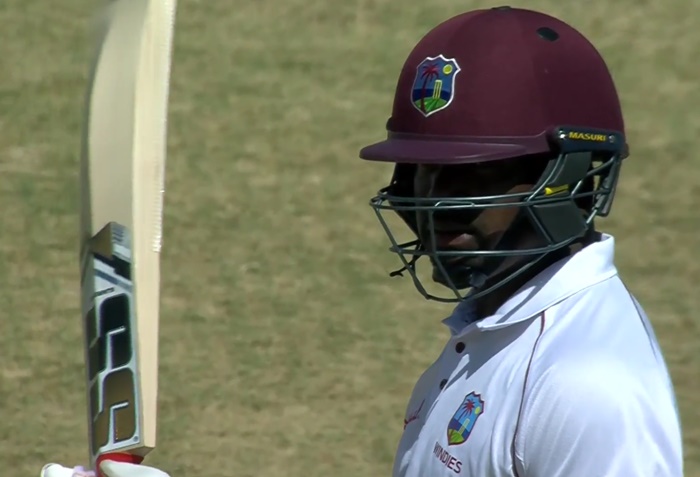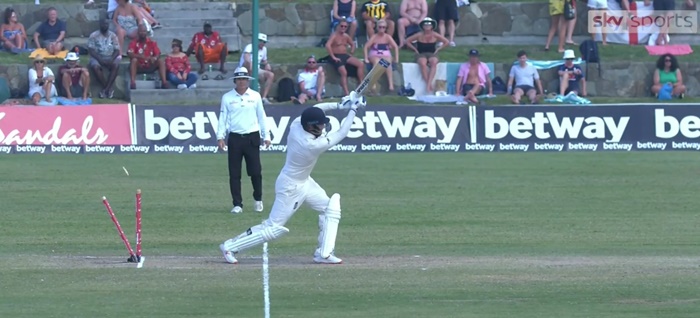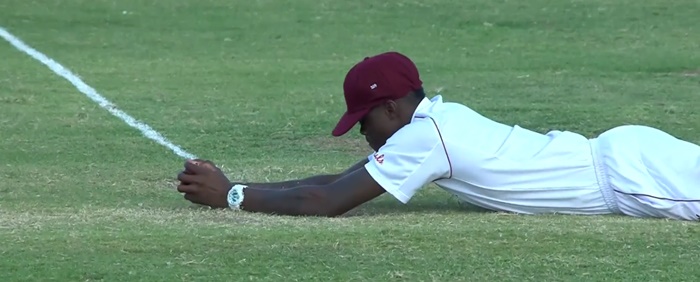
The former world number one squash player, Peter Nicol, tells an interesting story about the first couple of times he played the great Jansher Khan.
The first time they played, Jansher constantly tried for winners, aiming to finish every point as quickly as possible. Nicol won the match and so understandably felt pretty confident the next time they faced each other.
Unfortunately for Nicol, it turned out Jansher hadn’t practised for months leading up to their previous meeting and hadn’t really been fit. This time he was.
“He was so much better than me it felt embarrassing,” recalled Nicol, adding that Jansher had shaken his hand for “an overly sincere length of time” afterwards. Point made.
The “flair” approach – going for the spectacular winner – is one way to try and win, but it’s not nearly so reliable as wearing your opponent down when you know that you’ll endure better than they will. The greatest squash player of all, Jansher’s fellow Pakistani Jahangir Khan, built his game around this. He knew he was fitter than his rivals and that he would play fewer false shots, so he forced them into long rallies of such high intensity that eventually they’d break.
As approaches go, it proved fairly successful. Jahangir won – get this – 555 matches on the bounce. In 1982, he won the International Squash Players Association Championship without losing a single point. Jahangir had heard of losing at squash, but didn’t especially care for it. When he finally did lose to someone – after five years – he then went another nine months before losing again.
But this is an approach that’s built on knowing you’ll endure better than your opponent. If you suspect such an approach will see you beaten – as Jansher did in that first Nicol match – what else can you do but play a few shots, take a few risks and try and do maximum damage in the minimum time?
It might be unlikely that you’ll win playing that way, but it’s the only sensible thing to do if you’ve judged that the disciplined approach amounts to a slow march to inevitable defeat.
You get where we’re going with this, don’t you?
Bairstow v Bravo
In a low-scoring second Test, two contrasting fifties seemed to sum up the respective approaches of the two teams. Jonny Bairstow made a very fine, boundary-heavy 52 off 64 balls. Darren Bravo faced 216 balls to make just 50.
To a greater or lesser extent, most of the England batsmen attempted something similar to Bairstow and failed, while most of the West Indies batsmen attempted something similar to Bravo and made a few runs.

It’s easy to ask why the England batsmen didn’t ‘dig in‘ and try and ride things out, but maybe they felt that trading blows in that fashion would have guaranteed defeat and so took another tack.
Scoring at two an over is a very hard thing to maintain psychologically. If you’re trying to bat time, you have to be confident that it’ll work; that you’ll survive long enough to make a decent total – because if you don’t believe that, how can you possibly commit to that gameplan?
Is this West Indies team an unusually disciplined side?
Far, far, far too often, people talk about the great West Indies sides of the past, and they tend to get misty-eyed about the flair of those players, as if that was the secret of their success. But the West Indies sides of old were underpinned by pragmatism. They weren’t wafty, whimsical and mercurial. They were brutal, efficient machines.
Jason Holder’s West Indies team doesn’t have enormous panache, but like the great West Indies teams of old the players seem cold, organised and committed.
Against England, the batsmen have inched to supremacy and the bowlers have peppered the top of off stump. Yesterday, after the drinks break, Holder and Alzarri Joseph bowled a spell where they varied their angles and lengths, but maintained a line that was just impeccable.
Whether batting or bowling, the West Indies feel they can outlast England. And England seem to agree.
What does this mean for the future?
There’s a question here, which is how the West Indies’ will would hold under greater pressure.
It’s all well and good grinding out the singles when the opposition have been bowled out for 77 or 187. You can be pretty confident that you’ll get a lead in those circumstances. But what if England had made more in their respective first innings? Would the West Indies have felt as confident about playing a disciplined game in that situation, or would they have been tempted to make the rallies short by going for quick winners?
One thing we would say in their favour is that as a side they have been tempered. If you can manage to play patiently in defeat – as they have done at times in recent years – then you will certainly be better able to do the same when a match is in the balance.
And they do seem a committed bunch. Jason Holder appears to have assembled a bunch of players who take cricket very seriously.
As just one example, consider the impact of Alzarri Joseph’s appearance yesterday. Joseph’s mother had died and that day he came out to play cricket.

Joseph clearly subscribes to the ‘get on with everyday life’ approach to dealing with such a monumental loss, but his presence also meant that everything that followed seemed shot-through with huge significance. Imagine playing alongside him. If a grieving team-mate chooses to play cricket the day his mother dies then you’d better make damn certain that you take that cricket really, really fucking seriously.
There was one moment where John Campbell dropped Ben Stokes off Joseph’s bowling and we just instantly felt for the fielder so, so much. Dropping a catch is a hideous thing at the best of times, but letting Joseph down at a time like this? Campbell’s heart and soul must have instantly dropped out of his arse when that happened.
Conclusion
It is easier to be disciplined when you’re confident you’ll outlast your opponent. England’s occasionally wayward, freewheeling play may not be the inevitable byproduct of playing loads of limited overs cricket so much as a fundamental lack of belief that they can outlast opponents.
For his part, the hugely-impressive Jason Holder appears to be leading an improving side, but whether the disciplined approach they’ve employed so successfully in this series will be as easy to deliver against tougher opposition remains to be seen. One source of optimism that they might be able to do so comes from the simple fact that the more it works, the more they will gain in belief, and the more they gain in belief, the less likely they are to stray from their method.


Glad to see that you have found something sensible and constructive to say about this embarrassing shit-show… although the fact you are moved to ask of WI “whether the disciplined approach they’ve employed so successfully in this series will be as easy to deliver against tougher opposition ” is depressingly stark.
When did England become officially mediocre? Can anyone remember..? It seems to have happened with shocking swiftness and now has a somewhat irreversible feel to it. When I was reading your article I wanted to take issue with the idea that England’s batsmen had to hit out because they know they can’t slow down and grind (why not? who says? etc) – but although Stokes has managed to do exactly that at least once in the last year or so, it’s hard to see many of the others succeeding at it.
It is very encouraging to see WI playing so well, and let’s hope they can sustain it – the game needs them to be far better than they had become. But that does not alter the fact that England have been a pile of shite in this series, and fully deserve to feel what they probably are feeling right now, i.e. thoroughly humiliated. There’s no way I could sit through any post-match interviews with them after that.
This looks like the Rafael Nadal strategy
Although by his own admission he was not able to execute it in 2019 Australian open
Once he moves to clay courts he can execute it to perfection
This also seems to be what Kohli was up to, in Australia
At beginning of 2018 in South Africa it was intent because Rabada & co in south African pitches is really tough
Famously in South Africa he was quoted to have said, it is enough if we bat for one day to his partner Rahane (actually they batted one session but that was enough)
But by end of the year he was smelling blood against Steve Smith & Dave Warner less Australia
With Bumrah in hand, the ‘intent’ Kohli & Pujara displayed was to bat time & then watch Australian batsman crack under the interrogation by Bumrah & co
This result makes the Sri Lanka series seem much more of an aberration than anything else (and let’s be honest, Sri Lanka aren’t exactly world beaters at the moment). The current side is not really that different from the side that got thrashed in the last Ashes down under. They have lost Cook for a definitely worse choice of openers, have a different flavour of Curran, and an extra wicket-keeper in the side but mostly it looks the same. Did people really think the team had “turned a corner”?
There’s two schools of thought about why England can’t play the attritional way — one, they’re all essentially a bunch of numbers 5, 6, 7 playing in positions they shouldn’t be playing. Or two, they can but they get muddled and confused by the supposed “be positive” Baylissian coach-speak. I think it’s a bit of both.
Personally though, I feel it’s intellectually lazy to characterize it as a choice between an attritional approach and a flamboyant one. Good Test batting is not necessarily about strike rate — it’s about match awareness. When someone is bowling a good spell or a few wickets have fallen, and the batting team is under pressure, as a batsman your job is to get through that spell. That’s what you earn your corn for. Once you get through, you can take advantage of when the bowlers either tire and/or the ball stops doing a lot, which inevitably happens even with the best of attacks. It also takes match awareness to recognize that you are on top and it’s time to cash in, and it’s not the time to just hang in there (think day 4 Adelaide 2006).
Even the most aggressive batting lineups (think Australia of that era), didn’t just go out there and take undue risks — they all had great defensive techniques and were good enough to get through good spells of bowling. And they had the match awareness to recognize when a certain approach was needed and the clear thinking needed to implement that approach.
I feel that this match awareness can only come about when you play a lot of long-form cricket, and get the experience of facing all kinds of situations in various conditions. You can talk and coach till the cows come home, but there’s no substitute for match practice.
That point about match practice breeding match awareness is right – although guys like Bairstow, Root, Stokes and Moeen have all played 50 Tests. You’d think they’d be pretty sharp.
Bairstow talked about working on and trusting his defence more as a result of this move to three. Maybe a lack of faith in defensive techniques is what makes them think they can’t hang in there when the going’s tough. Either they need to work on them more or they simply need to make use of them more. We’d guess the latter.
Speaking of which, Moeen’s first Test hundred is still his most-rounded innings. https://www.kingcricket.co.uk/moeen-ali-and-jimmy-anderson-kings-in-defeat/2014/06/24/
The biggest worry for England, IMO, is the homogeneity of their batting approach. Most good teams would have batsmen with different strengths, who in an ideal world, should have the ability to work out what approach works for them in any given match situation. The idea that there is a one-size-fits-all approach for all batsmen is fundamentally flawed, and the way England have been playing suggests there are some pressures, explicit or implicit, to be “positive” at all times.
India made the same mistake when Pujara was dropped for being too slow, but seem to have realised their mistake.
Largely true. We’ve written about the dangers of fielding a homogenous batting line-up before (albeit in reference to Australia). It tends to result in boom or bust scores.
https://www.kingcricket.co.uk/a-homogenous-batting-line-up-with-the-same-strengths-and-weaknesses/2015/08/07/
At the same time, the best players moderate their approach. That seems to be what they’re not so good at. Trevor Bayliss says they err towards extremes, which seems a fair and accurate criticism.
Which is odd because he’s become the scapegoat for the ‘England know one speed’ movement, rightly or wrongly.
He seems to accept that he’s not got his message across. Slightly outrageous, in that guiding his players’ approach is a vast part of his extremely well-paid job, but we’ve a lot of time for that level of honesty. We like Bayliss quite a bit.
The best managers know which side of the line they should err
That is which kind of mistake is more acceptable
The vibe I am getting from Bayliss is that, it is more acceptable to collapse then score 50 runs from 200 balls
Mrs. Smudge, who is a scientist, tells me that an astonishing number of published papers use the “A tale of two….. phenotypes….. T-cells….. ferroportin mutation….” etc. device.
Mind you, a resurgent West Indies is a great thing. It is just a shame it is against England. It was the best of times…